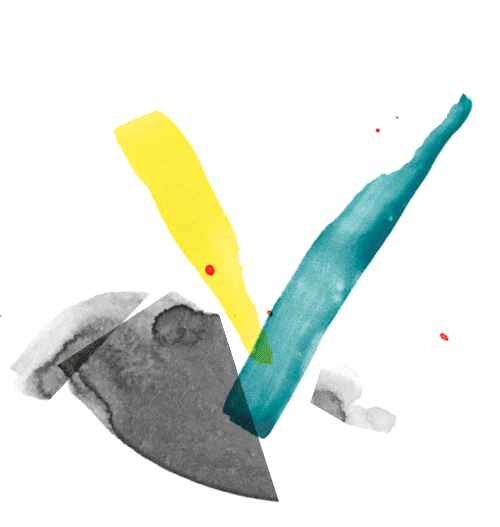

Sign up for our newsletters. You can change the settings or unsubscribe at any time.
Thank you for your subscription. We have sent you an e-mail with a confirmation link.


exp. 1
exp. 2
exp. 3

In 1933, Flávio de Carvalho founded the Teatro da Experiência [Theater of Experience], which took place at the Clube dos Artistas Modernos (CAM) [Club of Modern Artists] in São Paulo. The main idea behind the initiative was to experiment with the psychology of entertainment. De Carvalho’s play O Bailado do Deus Morto presented the story of the killing of a “hairy God,” betrayed by an “inferior woman.” The work was performed by a predominantly Black cast of non-actors dressed in white nightgowns and wearing aluminum masks. The heretical content of the piece plus the, at the time, unorthodox presence of Black bodies on stage was considered so scandalous that it led to the space being shut down by the police.
A scene of O Bailado do Deus Morto, November 1933
B/w photograph, exhibition print
Source: Fundo Flávio de Carvalho/CEDAE-UNICAMP, Campinas
Photo: Mathias Völzke
Fragments of the Artist’s Diary, Berlin 11.2019–1.2020
Virginia de Medeiros
Diary
Género y colonialidad en busca de claves de lectura y de un vocabulario estratégico descolonial
Rita Segato
Essay
THE MOBILIZATION
Nicolás Cuello
Text
O Bailado do Deus Morto
Flávio de Carvalho
Play
Glossary of Common Knowledge
L’Internationale Online
Glossary
COVID-19 VIDEOS
Carlos Motta
Video
By using this website you agree to the use of cookies in accordance with our data privacy policy.

In 1933, Flávio de Carvalho founded the Teatro da Experiência [Theater of Experience], which took place at the Clube dos Artistas Modernos (CAM) [Club of Modern Artists] in São Paulo. The main idea behind the initiative was to experiment with the psychology of entertainment. De Carvalho’s play O Bailado do Deus Morto presented the story of the killing of a “hairy God,” betrayed by an “inferior woman.” The work was performed by a predominantly Black cast of non-actors dressed in white nightgowns and wearing aluminum masks. The heretical content of the piece plus the, at the time, unorthodox presence of Black bodies on stage was considered so scandalous that it led to the space being shut down by the police.
A scene of O Bailado do Deus Morto, November 1933
B/w photograph, exhibition print
Source: Fundo Flávio de Carvalho/CEDAE-UNICAMP, Campinas
Photo: Mathias Völzke
I: Junto a las curadoras de la XI Berlin Biennale for Contemporary Art
Renata Cervetto, Lisette Lagnado
Conversation
Queer Ancient Ways: A Decolonial Exploration
Zairong Xiang
Monograph
Teatro da Vertigem
Monograph
O Bailado do Deus Morto
Flávio de Carvalho
Play
Género y colonialidad en busca de claves de lectura y de un vocabulario estratégico descolonial
Rita Segato
Essay
COVID-19 VIDEOS
Carlos Motta
Video
By using this website you agree to the use of cookies in accordance with our data privacy policy.

In 1933, Flávio de Carvalho founded the Teatro da Experiência [Theater of Experience], which took place at the Clube dos Artistas Modernos (CAM) [Club of Modern Artists] in São Paulo. The main idea behind the initiative was to experiment with the psychology of entertainment. De Carvalho’s play O Bailado do Deus Morto presented the story of the killing of a “hairy God,” betrayed by an “inferior woman.” The work was performed by a predominantly Black cast of non-actors dressed in white nightgowns and wearing aluminum masks. The heretical content of the piece plus the, at the time, unorthodox presence of Black bodies on stage was considered so scandalous that it led to the space being shut down by the police.
A scene of O Bailado do Deus Morto, November 1933
B/w photograph, exhibition print
Source: Fundo Flávio de Carvalho/CEDAE-UNICAMP, Campinas
Photo: Mathias Völzke
A World Without Bones
Agustín Pérez Rubio
A Moment of True Decolonization / Episode #6: Sinthujan Varatharajah. Constructing the Tamil Eelam State
The Funambulist / Sinthujan Varatharajah
Podcast
Teatro da Vertigem
Monograph
I: Junto a las curadoras de la XI Berlin Biennale for Contemporary Art
Renata Cervetto, Lisette Lagnado
Conversation
Being in Crisis together – Einander in Krisen begegnen
Feminist Health Care Research Group (Inga Zimprich/Julia Bonn)
Online workshop
Memorial to the Sinti and Roma Victims of National Socialism
Dani Karavan
Memorial
By using this website you agree to the use of cookies in accordance with our data privacy policy.

In 1933, Flávio de Carvalho founded the Teatro da Experiência [Theater of Experience], which took place at the Clube dos Artistas Modernos (CAM) [Club of Modern Artists] in São Paulo. The main idea behind the initiative was to experiment with the psychology of entertainment. De Carvalho’s play O Bailado do Deus Morto presented the story of the killing of a “hairy God,” betrayed by an “inferior woman.” The work was performed by a predominantly Black cast of non-actors dressed in white nightgowns and wearing aluminum masks. The heretical content of the piece plus the, at the time, unorthodox presence of Black bodies on stage was considered so scandalous that it led to the space being shut down by the police.
A scene of O Bailado do Deus Morto, November 1933
B/w photograph, exhibition print
Source: Fundo Flávio de Carvalho/CEDAE-UNICAMP, Campinas
Photo: Mathias Völzke
Teatro da Vertigem
Monograph
Solidarity and Storytelling. Rumors against Enclosure
María Berríos
Essay
Género y colonialidad en busca de claves de lectura y de un vocabulario estratégico descolonial
Rita Segato
Essay
Hatred Among Us
Lisette Lagnado
Essay
Expresiones de la locura: el arte de los enfermos mentales
Hans Prinzhorn
Monograph
Feminist Health Care Research Group
Web archive
By using this website you agree to the use of cookies in accordance with our data privacy policy.
By using this website you agree to the use of cookies in accordance with our data privacy policy.




